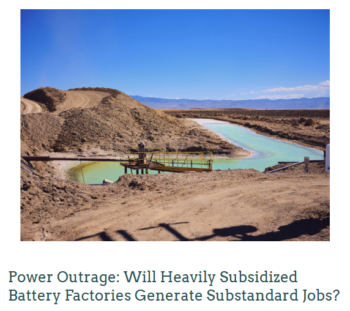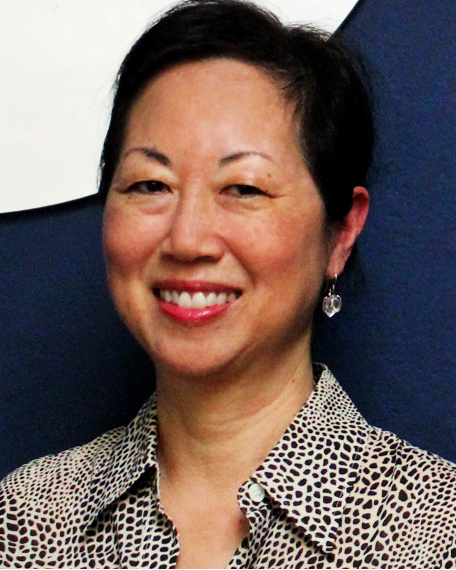Janine Jackson interviewed Social Security Works’ Nancy Altman about the latest Republican attack on Social Security, for the June 23, 2023, episode of CounterSpin. This is a lightly edited transcript.
CounterSpin230623Altman.mp3
Janine Jackson: A piece for FAIR cited a New York Times article describing the federal budget deficit as
overwhelmingly a consequence of American military outlay and entitlement programs such as Social Security, together with the nation’s unwillingness to pay the taxes needed to finance the expenditures.
Here’s the thing: That scaremongering about the runaway cost and unmanageability of Social Security, the like of which you may have heard very recently, is how I introduced our next guest in 2018.
And here’s the other thing: The New York Times article cited in that piece, which was written for FAIR by veteran Times reporter John Hess, came out in 1988.
It isn’t just that corporate news media get things wrong about Social Security, it’s that they stubbornly get the same things wrong–maybe most importantly, presenting it as a contentious issue in this year’s budget battles, when in fact the fight over Social Security is an ideological one, with many on one side and few on the other, that’s been going on since the program began.
The budget blueprint released by the House Republican Study Committee last week provides a new opportunity to trot out misinformation, and a new chance to combat it.

Strong Arm Press (2018)
We’re joined now by Nancy Altman, president of Social Security Works and author of, among other titles, The Truth About Social Security: The Founder’s Words Refute Revisionist History, Zombie Lies, and Common Misunderstandings. She joins us now by phone. Welcome back to CounterSpin, Nancy Altman.
Nancy Altman: Thank you so much, and what you just said, in your intro, is a zombie lie, is that Social Security is adding even a penny to the deficit. So I’m so glad we’re going to have this conversation.
JJ: Let’s start right there. I keep reading, “set to be insolvent in 2033,” right? As though Social Security is a building on fire.
So let’s leap right into those myths, because I know that some folks are going to say: “Oh, so you’re saying there’s no problem. You’re saying that Social Security doesn’t require any support.”
There’s so much misunderstanding about what the questions actually are, and then how we might respond to them. So have at it.
NA: I think you’re exactly right to talk about it: Is this a building on fire, or is it, down the road, you have to put your children through college, so you got to think about putting aside some money for their college education?
I think it’s much closer to the latter than the former. It’s not that nothing should be done. In fact, I think the program should be expanded. I think we’re facing a retirement income crisis, and the solution is expanding Social Security.
But just to put a few of the myths to rest–and you’re exactly right, the problem is that the media keeps misreporting this over and over again.
I smiled when you talked about the 1980s, because I started working on this program in the mid-1970s. I was involved with the so-called Greenspan Commission in 1982. At that time, I was told, oh, there’s a crisis, we can’t afford this program, and all these greedy old people. And you– I was young at the time–you’re not going to get your benefits.
Well, all that happened was I aged, and now my children and grandchildren are being told they’re not going to get their benefits because I’m greedy. And all that is is the passage of time.
So here are the facts. Social Security is a defined-benefit pension plan that provides life insurance, disability insurance and retirement annuities. And it does so extremely efficiently. It spends less than a penny of every dollar it spends on administration. More than 99 cents is returned in benefits. It’s extremely efficient.
It also is extremely responsibly managed. Every year, there are about 40 actuaries of the Social Security Administration. And just like any private insurance company, they are looking at longevity and birth rates and wage growth and all kinds of factors to make sure that Social Security can always pay its benefits.

Nancy Altman: “The opponents of Social Security have latched onto this unsurprising, manageable shortfall, and talked about the building’s on fire.”
It doesn’t just project out 10 years or 20 years, but for three quarters of a century, 75 years. And whenever you project out so far, sometimes you’re going to show unintended surpluses. Sometimes you’re going to have unintended shortfalls.
And what the actuaries have been telling us is that there is a shortfall, quite manageable. It’s now about a decade away. So we’ve got plenty of time to bring in additional revenue.
If Congress were to do nothing, Social Security could still pay 75% of promised benefits, 75 cents on the dollar.
But of course, we want it to pay 100%, because these are earned benefits. And there are many proposals, including many in Congress, that restore Social Security to long-range balance.
But the opponents of Social Security have latched onto this unsurprising, manageable shortfall, and talked about the building’s on fire. And they’ve been talking this way since the program began, really.
JJ: And that’s what I want to get at, because it’s so funny the way that the proffered solution always turns out to be cuts, and yet that’s being presented as saving the program. There’s a perversity there that says, we need to burn the village to save it.
NA: Exactly. If Congress doesn’t act, there may be some cuts in the future. So let’s make the cuts now. It’s really like, wait, what? I thought we were trying to prevent the cuts.
I call it a solution in search of a problem. The solution is, we’ve got to cut benefits. But, people will say, everybody’s living longer. We’ve got to cut benefits by raising the retirement age.
And I’ll point out, well, certain people are in physically demanding jobs, certain minorities, they’re not living longer. In fact, their life expectancies are going down.
Oh well, then, we’ve got to cut benefits cause it’s unfair to them. It’s like, wait, what?
And really, what is behind this is that, from the beginning, there’s been people who have opposed Social Security. Republican President Dwight Eisenhower, in a private letter to his brother, which you can find online, said that they are a tiny splinter group, their numbers are negligible, but they are stupid, he says.
They tend to be the very wealthy, who think they can just self-insure and don’t want to pay any money towards the common good. Now, they used to be quite honest, and they’d call Social Security “socialism.” The problem is that the American people appreciate what Social Security provides. And so they always lost.
Then, starting somewhere in the ’70s, their tactics changed, unless they all disappeared, and it’s hard to believe that happened; they say, “No, we love Social Security, but we can’t afford it.” And they make it a point about affordability.
Let me put the affordability question in context. Social Security currently costs about 5% of gross domestic product. At the end of this century, year 2100, it’s going to cost about 6% of gross domestic product. That’s what we’re fighting about, this 1% increase in gross domestic product.
Now, when the Covid epidemic hit, we spent more than 1% on all the ways to combat that. After the 9/11 attacks, we spent more than 1% on increasing military spending.
And, in fact, if you even just look at the Baby Boom, and these costs are because the Baby Boom is moving into its retirement years, and there was a baby bust following up and so forth, that when the Baby Boomers hit kindergarten, we spent more than 1% of GDP on increased classrooms and hiring teachers and so forth.
And those three, the Covid, the 9/11 and even Baby Boomers entering kindergarten, were surprises to policy makers. This was not a surprise.
JJ: We’re hearing how we can’t afford this and we can’t afford that. And you have to ask, cui bono, because certainly even in this Republican Study Committee plan, not everyone is tightening their belt. Not everyone is rallying around and suffering together. There are some folks who are spared from what we’re being told is meant to be a shared social cost.
NA: And in fact, not even are they spared, they’re benefiting. The same Republican Study Committee budget, which calls for increasing the retirement age, slashing middle-class benefits, privatizing Medicare, transforming it into a premium support, which is just giving people a coupon and telling them to go out on the market–at the same time that they’re really hitting the middle class and working class, they’re giving tax cuts to billionaires. That makes no sense.
If you look at how people did during the worst part of the Covid pandemic, so many people lost income, lost jobs, lost their lives, but the billionaires increased their wealth substantially.
So there’s no question that there are ways and there are proposals out there that are not undue burdens to anyone. They require the very wealthiest, those earning millions and billions of dollars, to pay what I would consider their fair share, and at the same time expand benefits.
But what the Republican Study Committee, which makes up about 70% of the House Republicans, and what Republicans in the Senate also are calling for, is exactly what you’re saying: belt tightening for those who are middle class and working class, and big gifts to those who are the wealthiest.
And that makes absolutely no sense, and is not what the American people want. So there’s a real debate going on, but one side, 80% of the American people favor, which is no cuts and let’s expand and make the wealthy pay more.
And the other side, which is, let’s go behind closed doors and cut benefits, but not have our fingerprints on them. That’s what makes the debate so hard, because it’s got to be transparent for everyone to see.
JJ: I want to point out one thing, that you have also indicated, because media and many people often shorthand Social Security with “benefits for seniors” or “programs for the elderly.” And I just want us to tip the fact that Social Security deeply impacts the lives of many disabled people as well, and they’re often erased in media debates. But certainly if this budget were to go forward, disabled people would really feel the brunt.
NA: First of all, I’m so glad you raised that, because Social Security is also the nation’s largest children’s program; because of the survivor benefits and the family benefits, more children benefit from Social Security. The benefits are by no means generous, but they are extremely important when a breadwinner dies or becomes so disabled that they can no longer work.
And you’re exactly right that disability insurance is an extremely important part of the program. And the Republican Study Committee really goes after the disability insurance part, makes it harder to get benefits, makes it harder to keep getting those benefits. It is really hostile to that group. So I’m so glad you raised that.
And the point is that Social Security, one of the many reasons I think it’s so popular, it really embodies basic American values. And it is this idea of, we’re united, we all contribute. The idea is that it’s insurance against the loss of wages. You don’t get benefits unless there’s a work record. But if you’re 30 years old and you walk out in the street and get hit by a truck, God forbid, and can no longer work again, you get benefits for the remainder of your life.
If you have young children and instead of just becoming disabled, you are killed, your children will get benefits until age 18. Now they used to get them until 22, and many of us think that should be restored, or even higher. Normally parents will help their children finance their college educations, but if the parent is gone, though, then the rest of us step in.
So you’re exactly right that this is a program that benefits all of us, and even indirectly–many children receive benefits directly, but they also often live in families where they’re living with their grandparent, their grandparents, getting Social Security. It really is a family program, and I think that’s part of the reason it’s so well-supported.
JJ: Just finally, and briefly, “Social Security Works” is the name of the group. It’s the title of the book you co-authored with Eric Kingson. And I really like that verb there: It works. It works to do, as you’re just saying, real things for real people.
And it’s countering this idea that you get every time you pick up the paper, which is that it’s broken, that Social Security is broken or failing or struggling.
And I know it’s just words, but it seems so crucial, because in news media, Social Security is a problem, but actually Social Security is a program that works that we just need to keep working.
NA: Exactly. And in fact, I consider it even more than that. I consider it a solution. Private pensions have largely, in the private sector, disappeared. 401Ks have proven inadequate for most people, other than the very wealthy.
The one part of our retirement income system that does work is Social Security. It’s the most universal. It’s portable from job to job. It’s very fair in its distribution. It’s extremely efficient. Its one shortcoming is that its benefits are too low, which is why we need to expand it.
But you’re exactly right. There’s an elite media view that is very hard to shake. As you say, you could go back decades, and you’ll see the same articles. Somehow, it’s a problem, it’s a drain, it’s unaffordable, it’s this, it’s that. When, actually, it’s extremely efficient. It works extremely well. Indeed, it’s a solution. We should build on it, because it works so well.
JJ: We’ve been speaking with Nancy Altman from Social Security Works. They’re online at SocialSecurityWorks.org. Nancy Altman, thank you so much for joining us this week on CounterSpin.
NA: Thank you so much for having me.
The post ‘The One Part of Our Retirement Income System That Works Is Social Security’ appeared first on FAIR.
This content originally appeared on FAIR and was authored by Janine Jackson.






















































